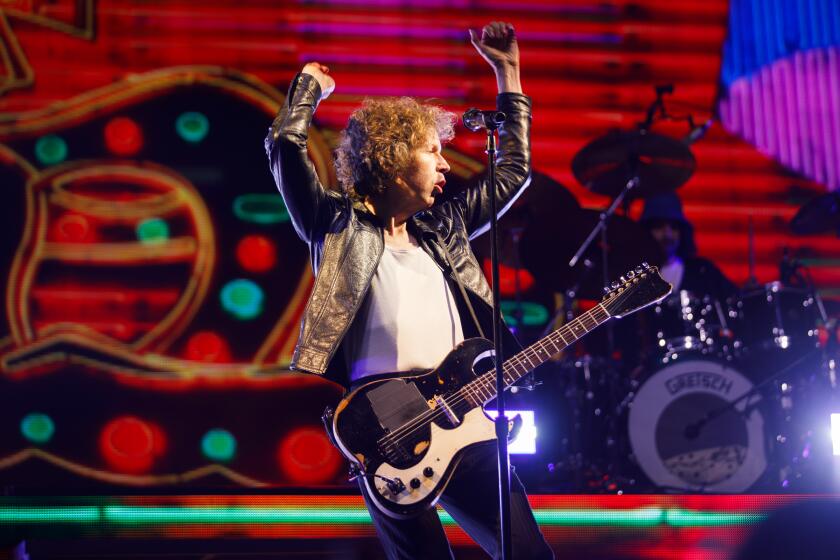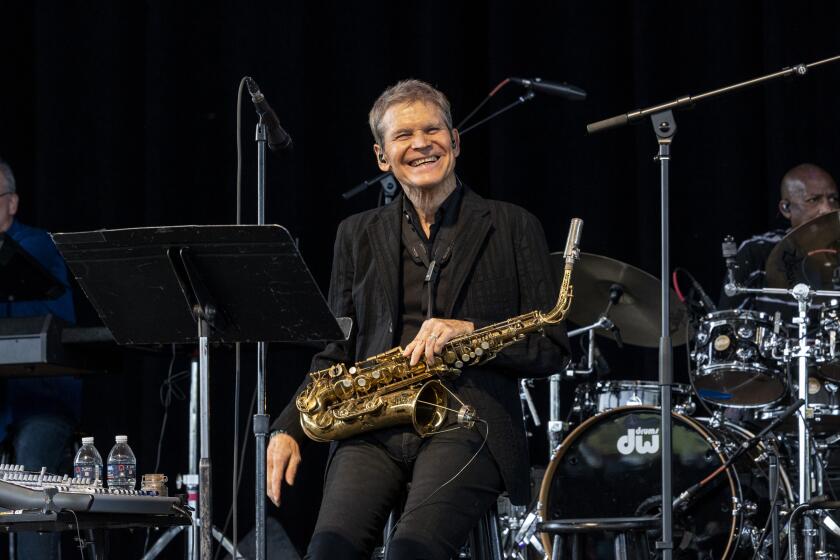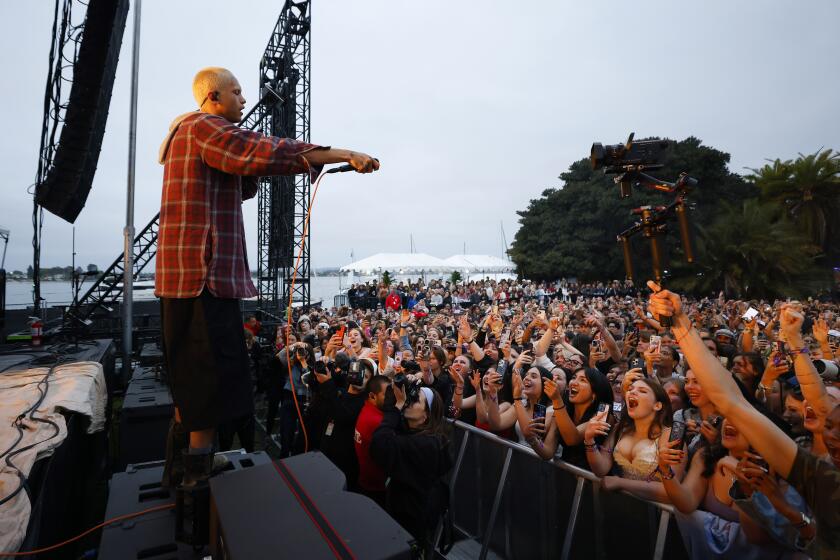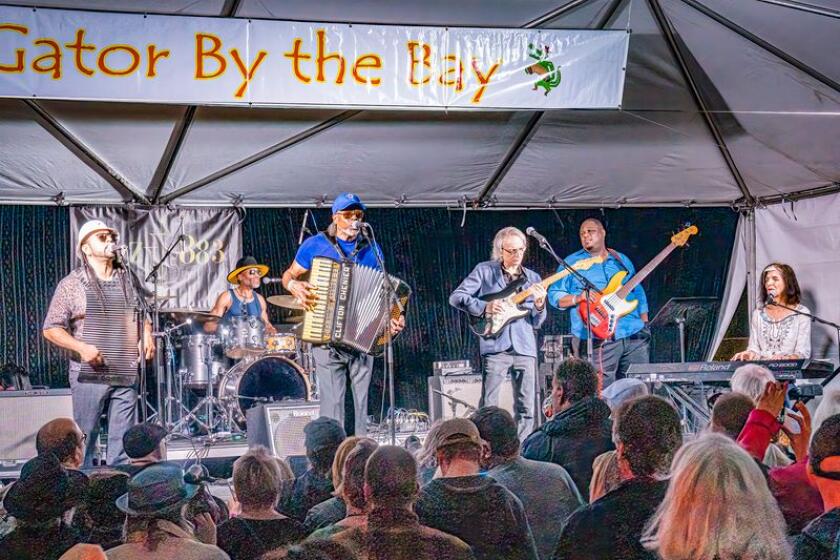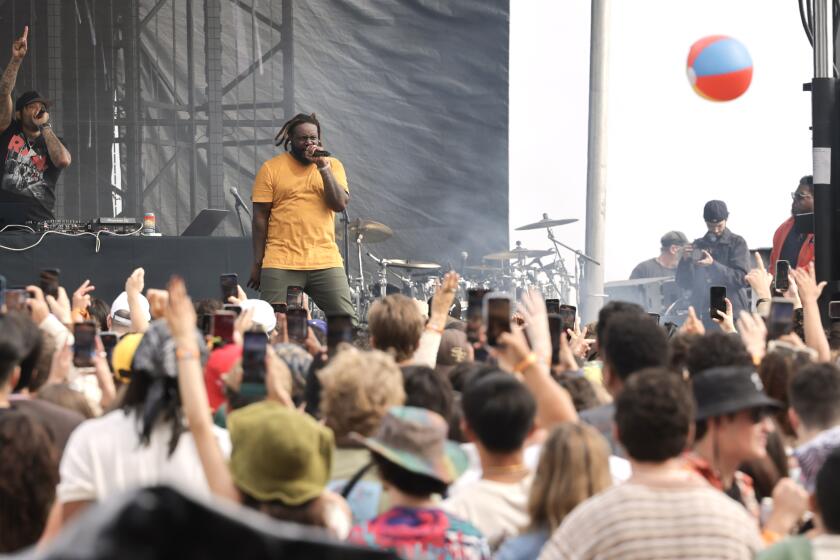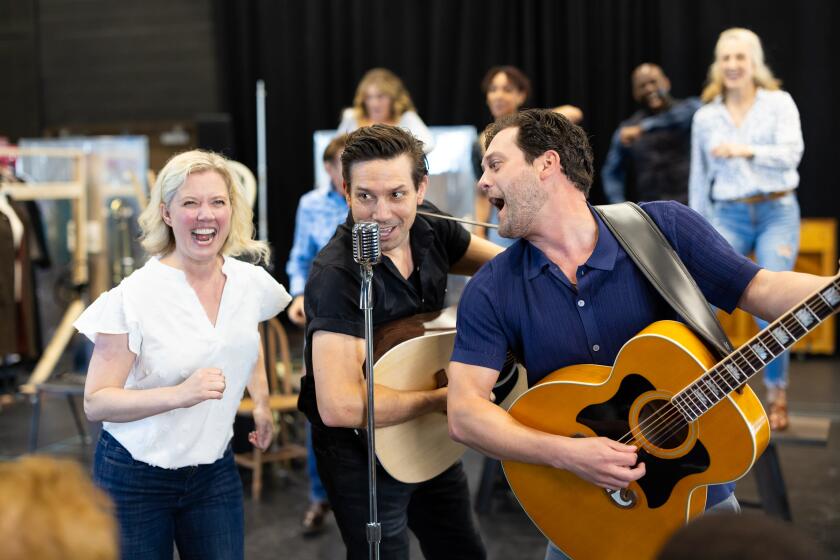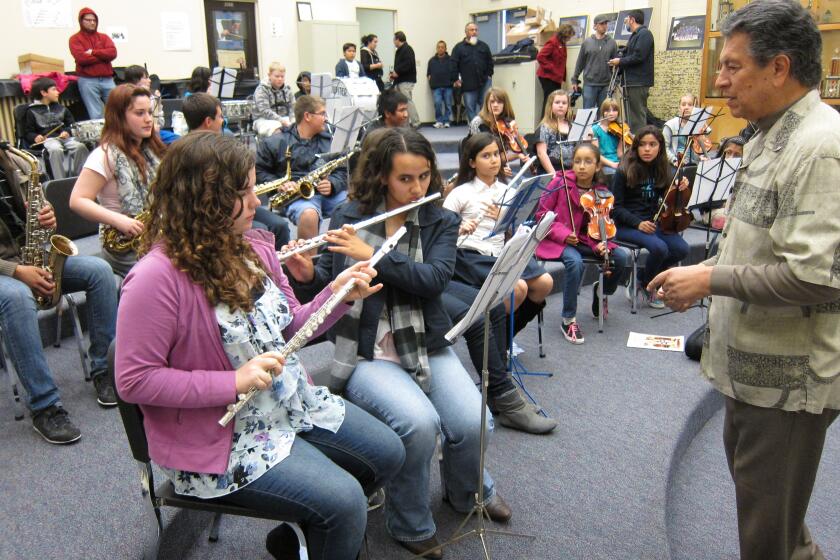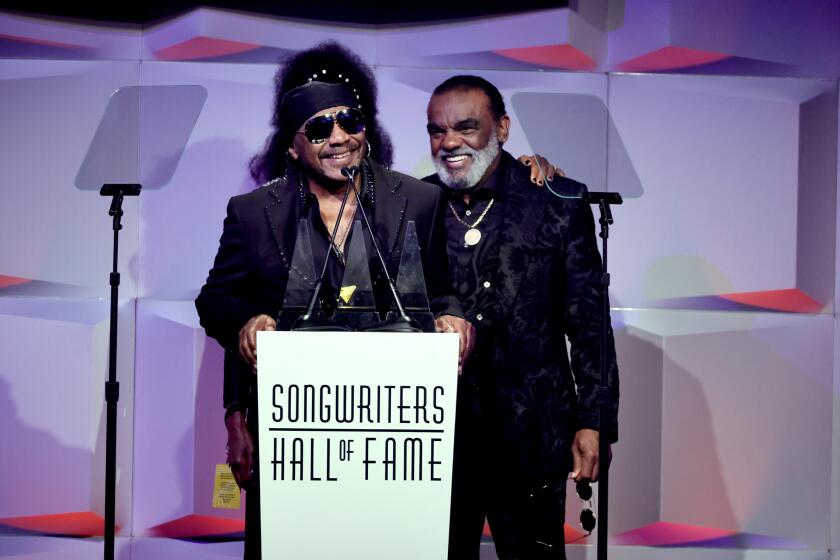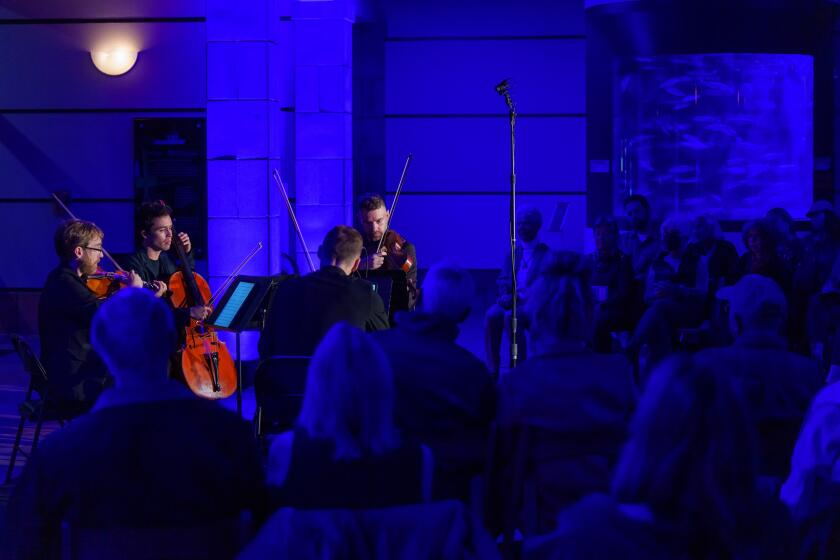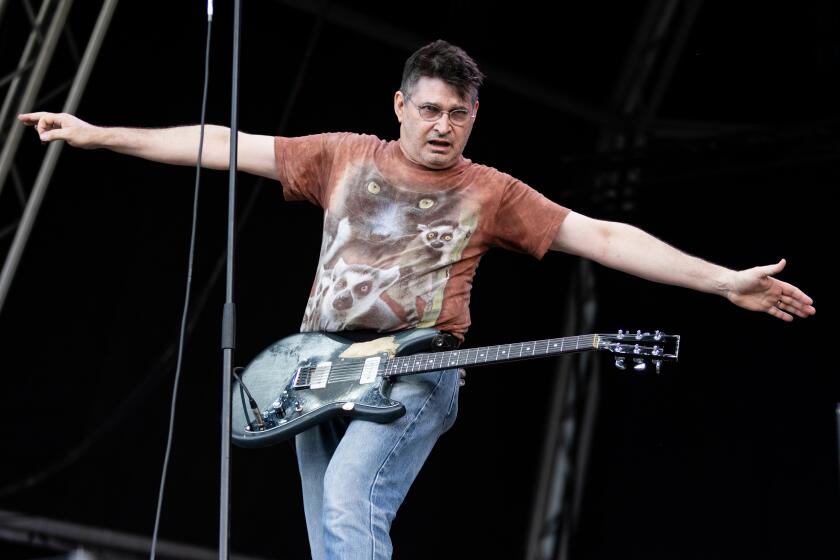Burt Bacharach is supporting school gun violence survivors with new song ‘Live to See Another Day’

At the age of 90, Burt Bacharach isn’t mellowing with age.
Burt Bacharach isn’t mellowing with age.
At 90, this multiple-Grammy and Oscar-winning songwriter seems more socially and politically engaged than ever in his storied career. His pointed comments lamenting global warming during his recent August concert with the San Diego Symphony led to fisticuffs between at least two attendees.
“I told the audience,” Bacharach recalled, “if you’re a non-believer in climate change, maybe I’d ask you to look at something else about the water that your children will drink, the air that your children will breathe. Your grandchildren, what they will have? What (are) we leaving them? I mean, we’re burning up the planet.
“So that’s what started the fight ... . Not everybody’s on the same side I am, I always have to remember.”
Undaunted, Bacharach is now determined to speak out — in words and music — against the series of school gun shootings that have rocked the nation.
How determined?
Due out Friday on most digital music platforms, his new song, “Live to See Another Day,” is dedicated to — and will benefit — survivors of school gun violence. It is accompanied by a YouTube video — filmed at Westchester High School in Los Angeles and released today — that features an empty auditorium and classrooms to underscore the lives that have been lost in school shootings.

Live To See Another Day - Burt Bacharach & Rudy Perez. Handout Music Video
Co-written with multiple-Grammy-winner Rudy Pérez, the heartfelt ballad decries violence and encourages understanding and compassion for others in these increasingly polarized times. Although Bacharach is an ardent Democrat, the video deliberately omits any reference to the NRA or politics.
“It’s a simple message — it’s easier to love than to hate,” said Bacharach of “Live to See Another Day,” which features the Miami Symphony Orchestra and two accomplished Florida singers, Haven Starr and Angelina Green, who are both still in their teens.
“I do believe music has healing potential, has power, even if it’s just for a couple of minutes, like one song,” Bacharach continued. “And if you bring somebody to the point of tears, or near tears, or warm their hearts, these are tough times.”
“Live to See Another Day” was recorded by Pérez and the Miami Symphony Orchestra, with singers Green and Starr, at two tribute concerts in March. Both concerts were performed in honor of the 17 victims, the families and the survivors of the shooting at Marjory Stoneman Douglas High School in Parkland, Fla.
All net proceeds from the song will go to Sandy Hook Promise. The nonprofit organization is based in Newtown, the Connecticut borough where 20 first-grade students and six educators were killed by a lone gunman in 2012. Donations can be made online to sandyhookpromise.org/ or livetoseeanotherday.org/go.
Sandy Hook Promise is headed by some of the family members who lost loved ones in the shooting there and are working to prevent gun violence through intervention and mental health programs.
“The future lies with our children. And that can work, if we keep them alive. They can register to vote, they can have a life, they can be smart, but they gotta live to go to that next (level),” said Bacharach, a longtime Los Angeles resident, during a recent interview in the airy living room of his Del Mar summer home.
“When I went to high school, what was I nervous about? My marks were going to be terrible! But an active shooter? Nobody ever heard of such a (thing). How did we ever get to this point that quickly? Granted, that was some time ago that I went to high school, but how did we get to this point?”
Bacharach is best known for having co-written a slew of classic songs in the 1960s and ’70s with lyricist and longtime musical partner Hal David, including such chart-topping classics as “(They Long to Be) Close to You,” “This Guy’s in Love with You” and the Oscar-winning “Raindrops Keep Fallin’ On My Head.”
The duo’s songs were equally popular with rock, pop and soul artists. They have been covered over the years by everyone from such bands as Love and Manfred Mann to Adele, Dionne Warwick, Aretha Franklin and Elvis Costello, with whom Bacharach shared a 1999 Best Pop Collaboration with Vocals Grammy win for their song collaboration, “I Still Have That Other Girl.”
A classically trained composer and pianist, Bacharach’s first major gig before he established himself as a songwriter was as Marlene Dietrich’s musical director. Bacharach expertly drew from elements of contemporary classical music and jazz as key elements in the intricate pop songs he and David co-wrote together..
But with the exception of 1965’s “What the World Needs Now is Love,” released as the war in Vietnam began to reach fever pitch, and 1984’s AIDS-inspired “That’s What Friends Are For,” Bacharach has never written and released a single that focused on a topical issue the way “Live to See Another Day.” And, certainly, not one with such anguished lines as “My soul is crying / Children are dying … Stop all this madness.”
“Maybe I’m a late starter, (making a) late entrance, but I’m here,” said Bacharach, speaking in his airy Del Mar home he and wife Jane share overlooking the Pacific Ocean.
Pérez agreed with that assessment.
“Burt did mention the exact same thing to me about being a late bloomer,” said five-time Grammy-winner Pérez, speaking by phone from Miami in a separate interview. “But kids being shot, that really touched him. And that’s when he decided he wanted to get involved at this point in his life and make a statement.”
Bacharach and Pérez wrote “Live to See Another Day” a few years ago, after being dismayed by the then-latest string of school shootings. They thought they might pitch a demo of the song to Arianna Grande or another young pop vocal star.
But after the February shootings at Marjory Stoneman Douglas High School in Parkland, the two musicians decided they needed to act as soon as possible. Both are now eager to perform and promote the song as much as possible leading up to the midterm elections.
“I can’t account for what anybody else is gonna say,” said Bacharach, the father of three grown children with Jane, who is his fourth wife.
“I account for what I will say. And I’m also careful on stage, too, you know. I have never mentioned our president’s name on stage. I have dedicated songs many times to the citizens of Puerto Rico. And then explained to the audience they are United States citizens, Puerto Ricans, and (that) the country’s broken and has been broken, and they don’t have any water, and they have no infrastructure.
“So, you know. I pick my places.”
Bacharach also picked his place with “Who Are These People?” on his Grammy Award-winning 2005 album, “At This Time.” The song, which featured Elvis Costello on vocals, was composed by Bacharach, who collaborated on the lyrics with Tonio K. It was the first time he had written any words for one of his songs, even if that song was not heard by many.
Inspired by the Bush administration-led war in Iraq, “Who Are These People?” all but seethed, with such pointed lines as: Who are these people who keep telling us lies? and Who are these people that destroy everything? And sell off the world for whatever it brings?
Speaking backstage moments after his 2006 Grammy win, Bacharach — who was flanked by his son Oliver, then 13, and daughter Raleigh, then 10 — said: “I took a chance, a risk, on this album. Because I spoke what was in my heart about what is wrong politically, trying to shake some things up.
“I’ve never seen times like we’ve got right now — I mean, Vietnam was bad — and I’m really upset. This is the future I’m leaving behind for these kids (and) we’ve really made a mess of it. If the president had just got up, and said: `I made a mistake. I take full blame for it. There were no weapons of mass destruction; our information was wrong. Bear with me, we’ll get through it.’
“But to stonewall it — I never like to be lied to, by a girlfriend or an agent, and certainly not by the president of the United States.”
Then, with a smile, he added: “I will never say anything on stage derogatory about any of our leaders, particularly (Dick) Cheney.”
Bacharach smiled and nodded as his 2006 backstage Grammy quotes were recently read aloud to him in his Del Mar home. His smile disappeared when asked how he compared the political realities of 12 years ago with those of today.
“Somebody like George W. Bush looks good (now),” Bacharach said, as his steely blue eyes narrowed.
Of course, it is not uncommon for prominent musicians to speak out for — and against — U.S. government actions.
In 2003, country-music star Toby Keith got into in a very public feud with the Dixie Chicks after the Texas trio’s lead singer criticized President Bush, and the then-pending war in Iraq, during a concert in England. Megadeth leader Dave Mustaine, a La Mesa native, was also very vocal in his support of the U.S.-led Gulf War, as were other music stars.
Yet, while “Live to See Another Day” decries the shootings in American schools, the underlying message in its lyrics espousing “love, sweet love” bring Bacharach full circle to his classic 1965 song. It’s a song he continues to perform, including on his recently concluded annual summer concert tour of Europe.
“Who knew when we wrote ‘What the World Needs Now is Love’?” he said of its timeless message. “Or the value of the song, and the meaning of the song, and what it meant then and now, (and) what it’s grown into?
“ ‘Live to See Another Day’ is a song we wrote with all our hearts and prayers, (as) a way to make people feel something and create an awareness that can bring actual change. Thoughts and prayers are so important, but change is even more important.”

At the age of 90, Burt Bacharach isn’t mellowing with age.
george.varga@sduniontribune.com
Twitter @georgevarga
Get U-T Arts & Culture on Thursdays
A San Diego insider’s look at what talented artists are bringing to the stage, screen, galleries and more.
You may occasionally receive promotional content from the San Diego Union-Tribune.

